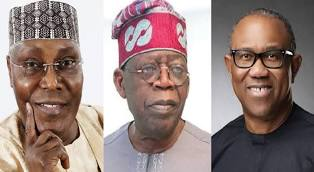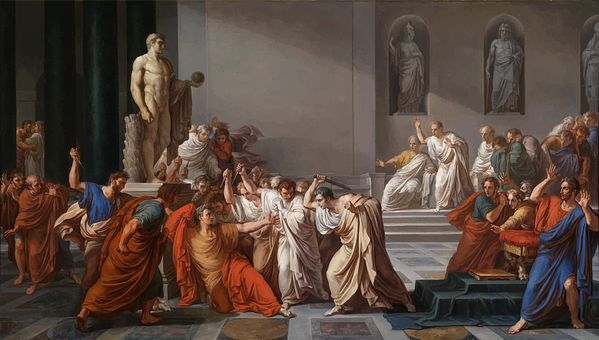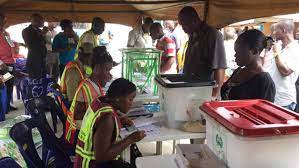
The collation of results for the recently concluded Presidential elections in Nigeria was concluded in the early hours of today. I can confidently state that it leaves a bitter taste in the mouths of many young Nigerians, as it seemed to have been marred with irregularities and allegations of rigging. This reminded me of the famous phrase "Politics is Local."
The phrase "all politics is local" is often attributed to former U.S. House Speaker Tip O'Neill, who used it to emphasize the importance of understanding and responding to the concerns of one's constituents when running for office. In essence, the phrase suggests that politicians need to focus on the issues most relevant to the people in their local communities if they want to succeed in their political careers.
The idea behind this phrase is that politics is fundamentally about people and the issues that affect their daily lives. While national and international issues may also be important, politicians who fail to address the concerns of their local constituents are unlikely to win elections or retain their seats in office. Therefore, it is essential for politicians to understand their local communities' needs and priorities and work to address them effectively.
However, it is worth noting that the phrase "all politics is local" is not necessarily true in all contexts. In some cases, national or international issues may take precedence over local concerns, and politicians may need to focus their attention accordingly. Additionally, the political landscape is constantly evolving, and the most important issues to voters can shift rapidly in response to changing circumstances. Ultimately, successful politicians must be able to navigate this complex and dynamic environment and find ways to balance local and national concerns in their political strategies.

Source
Is all Politics indeed Local?
The phrase "politics is local" emphasizes the importance of understanding and responding to the concerns of one's constituents when running for office. While this can be a positive approach to politics, in some cases, it can also create an incentive for politicians to engage in unethical or illegal behaviour, such as rigging elections.
In many African countries, political leaders have been known to rig elections in order to retain power and maintain control over local resources and institutions. This can involve a range of tactics, including voter intimidation, ballot stuffing, ballot box snatching and tampering with election results.
One way in which the phrase "politics is local" can encourage such behavior is by creating a sense of competition among local politicians. When politicians view politics as a zero-sum game, where only one person or party can win, they may be more likely to engage in unethical behavior in order to secure victory.
Furthermore, the phrase "politics is local" can also contribute to a focus on personal relationships and patronage networks (Man-Know-Man), rather than on policy issues or good governance. When politicians prioritize their needs over those of the broader society, they may be more inclined to engage in unethical or corrupt behaviour in order to deliver resources and services to their family and loved ones.
Overall, while the phrase "politics is local" can be a useful reminder of the importance of connecting with voters and understanding their concerns, it is important to recognize the potential risks and challenges that it can create in some contexts. Political leaders must be committed to upholding democratic principles and ensuring fair and transparent elections, even in the face of intense local competition and pressure.
Africa is a vast and diverse continent with many different political systems and histories. Since gaining independence from European colonial powers in the mid-20th century, many African countries have struggled with political instability, corruption, and economic underdevelopment. There have been numerous coups, civil wars, and authoritarian regimes.
Some of the root causes of political decay in Africa include weak institutions, ethnic and religious divisions, economic inequality, and the legacy of colonialism. Additionally, external factors such as the Cold War, foreign intervention, and globalization have also played a role in shaping African politics.
Despite these challenges, there have been some positive developments in recent years, such as the growth of civil society, the spread of democratic institutions, and improvements in economic growth and human development indicators. Nevertheless, the political situation in Africa remains complex and multifaceted, and there is still much work to be done to address the underlying causes of political decay.
The recently ended elections in Nigeria, which were marred by numerous anomalies and accusations of rigging, support the idea that there is still a long way to go before the African continent can be regarded as politically stable. This can be seen in the dismal performance of the Independent National Electoral Commission (INEC), which was unable to adhere to the rules it put up to regulate the election process. By doing this, they have seriously tarnished any credence the election results should have.
The only good news from the just completed Nigerian presidential elections is that there is still hope for the democratic process because all of the failures were clearly identified, and I am confident that the next elections conducted in this nation will be far more credible.
Thank you for sticking around.





